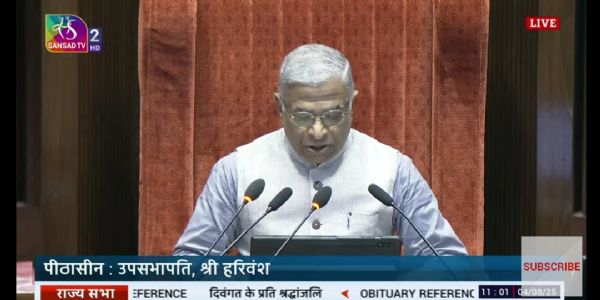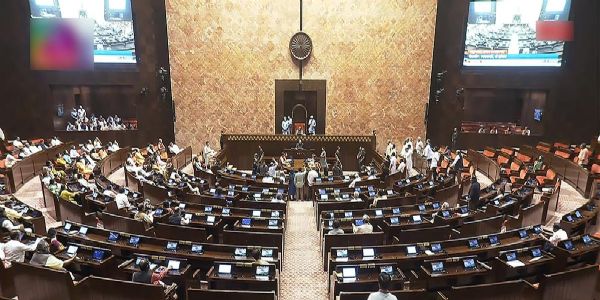
Delhi, 2 August (H.S.): The National Human Rights Commission (NHRC) of India, in collaboration with NITI Aayog and various Union Ministries, supported the Sankala Foundation in organizing a national conference titled 'Ageing in India: Emerging realities, evolving responses' on Friday, in New Delhi. The conference aimed to protect the human rights and dignity of senior citizens, viewing ageing as an opportunity, while encouraging innovative policies and stakeholder dialogues to address the challenges posed by India's ageing population.
NHRC Chairperson Justice V. Ramasubramanian, in his inaugural address, highlighted India's cultural tradition of valuing elderly care as essential and advocated for incorporating these values into modern policy frameworks to uphold senior citizens' dignity and well-being. He emphasized the NHRC's commitment to safeguarding elderly rights, referencing various initiatives, including advisories and studies, aimed at improving the rights of senior citizens.
Dr. Vinod K. Paul from NITI Aayog focused on the significance of healthcare and social security for the elderly, underscoring the importance of empowering families in the caregiving process. NHRC Secretary General Bharat Lal noted the projected rise of elderly people to nearly 35 crore by 2050, which presents critical policy challenges. He called for family and community-based care models aligned with Indian values, complemented by global best practices and refrained from neglecting the unique needs of elderly widows and those affected by the COVID-19 pandemic.Bharat Lal described the elderly as valuable reservoirs of knowledge and experience and advocated for community-based services and inter-generational engagement, adapting successful models from Scandinavian countries and Japan within the Indian context.
He urged stakeholders to explore the conference's report titled 'Ageing in India: Challenges and Opportunities' to promote inclusive, community-led healthcare and support for elderly citizens.The conference structure included four thematic sessions, each led by distinguished experts: 'Strengthening Elderly Welfare: Policy and Practice' chaired by Shri Amit Yadav, 'Health and Mental Wellbeing of the Elderly' by Smt Preeti Sudan, 'Leveraging Ageing for Growth and Development' by Amitabh Kant, and 'Shaping Futures: Preparing for an Ageing Society' by Dr. Vinod K. Paul. Notable speakers included Dr. Kiran Bedi, Amarjeet Sinha, and other senior figures in government, academia, and civil society.
Participants ranged from government officials to representatives from various sectors, emphasizing a collaborative approach to support for elderly citizens. Key outcomes highlighted the increase in life expectancy due to better nutrition and healthcare, the dual nature of opportunities and challenges presented by an ageing population, and the need to transform perceptions of aging into something aspirational through early preparation and lifestyle approaches.
The conference underscored the role of technological advancements and the importance of creating more avenues for elderly contributions. A competitive environment among states for better elderly care, along with local self-governments’ enhanced responsibilities, was deemed essential. Kerala’s Palliative Care model was proposed for broader adoption in elderly care.Finally, the necessity for financial security, digital literacy, long-term care insurance, digital healthcare, and assistive devices was emphasized to integrate the elderly into India's 'silver economy.'
The Indian approach to elderly care should prioritize community and family-led initiatives to ensure dignity and rights for the senior population.The conference concluded with a call to all stakeholders, including government bodies and civil society, to engage actively in initiatives that safeguard the rights of the elderly, contributing to a more just and equitable society.
---------------
Hindusthan Samachar / Jun Sarkar







